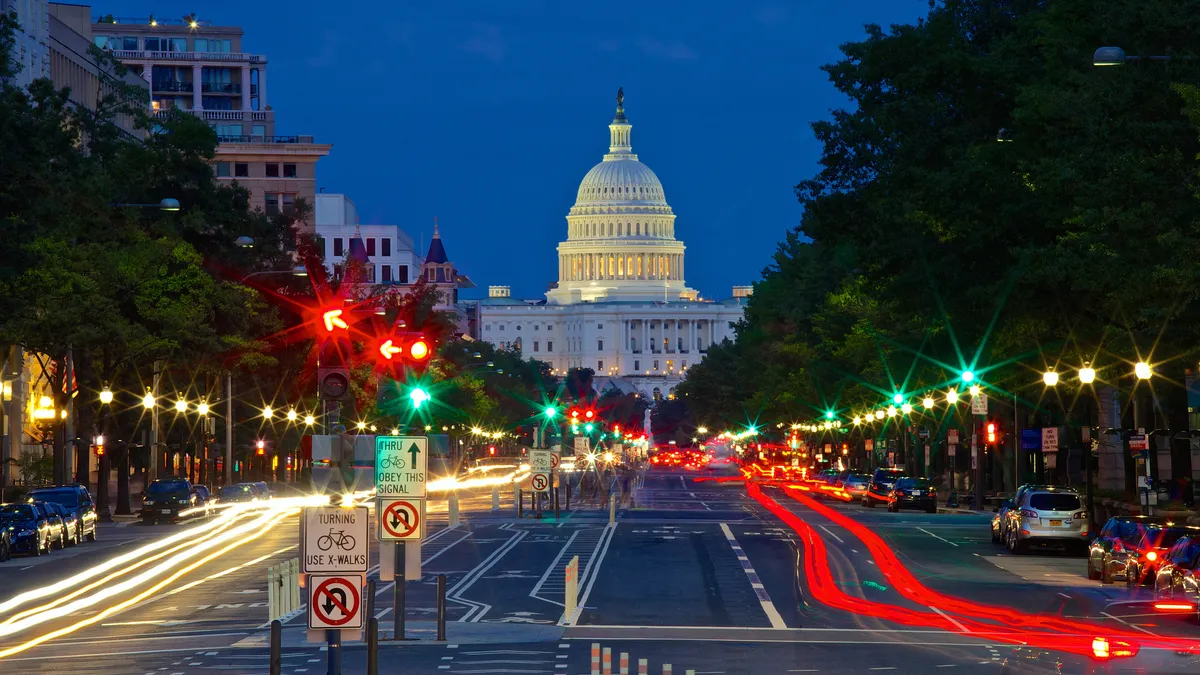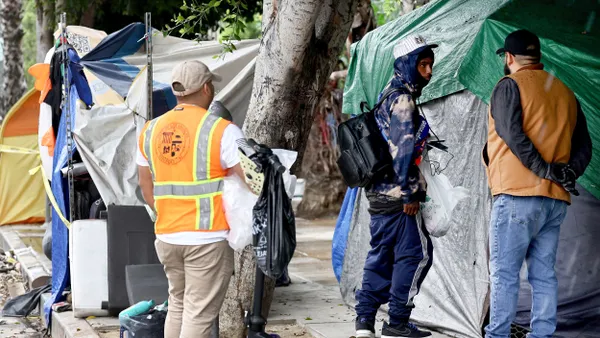Dive Brief:
-
City lawmakers in the District of Columbia on Tuesday voted to advance a bill that would set a 100% renewable energy mandate by 2032 and require that all public transportation and privately owned fleet vehicles in the city be zero-emission by 2045.
-
The CleanEnergy DC Omnibus Amendment Act of 2018 would also establish a task force to set new building efficiency standards and allow utility Pepco to recover revenue lost to efficiency improvements by its customers. The D.C. Council gave the bill unanimous preliminary approval, but a second vote is scheduled for next month.
-
D.C. has little power generation within its borders and complies with its current 50%-by-2050 mandate largely through the purchase of renewable energy credits. If the bill is passed by the council, the mayor can sign it, veto it or let it become law without her signature.
Dive Insight:
The D.C. Council's pending energy omnibus highlights how a number of American cities are strengthening their environmental and clean energy policies in the face of deregulatory actions from the federal government.
More than 90 U.S. cities and towns have already committed to sourcing their electricity from 100% renewable resources, according to the Sierra Club, which keeps a running list.
For most jurisdictions, compliance with those mandates will mean buying renewable energy credits (RECs) to offset the amount of electricity generated by fossil fuels to serve the city's power needs.
In D.C., compliance with current clean power goals has largely been achieved through buying credits for wind energy, according to a report from city utility regulators highlighted on Twitter by New York Times reporter Brad Plumer.
Hmmm, I guess a lot's changed in two years. It looks to me like in 2017 wind power RECs were by far the biggest source of compliance RECs for DC's program. https://t.co/yKcq3fH26u pic.twitter.com/IJM2ryq253
— brad plumer (@bradplumer) November 27, 2018
The D.C. bill would also go beyond the electricity sector, mandating that all public transportation and fleet vehicles be electric or another zero-emission technology by 2045. The provision would affect any passenger fleets with more than 50 passengers, including vehicles operated for ride-sharing services like Uber and Lyft.
To support that goal, the bill would direct the Public Service Commission to consider utility investments in electric vehicle charging stations and to "approve the application if it finds that it is in the public interest" and in compliance with D.C. law.
Pepco, the distribution utility that serves D.C., told the Washington Post it would support the bill and climate activists say the unanimous support for the bill demonstrated Tuesday means the December vote will be little more than a formality.
"[T]he core features of the legislation are expected to become final law by Christmas," Denise Robbins, communications director for the Chesapeake Climate Action Network, said in an emailed statement.












